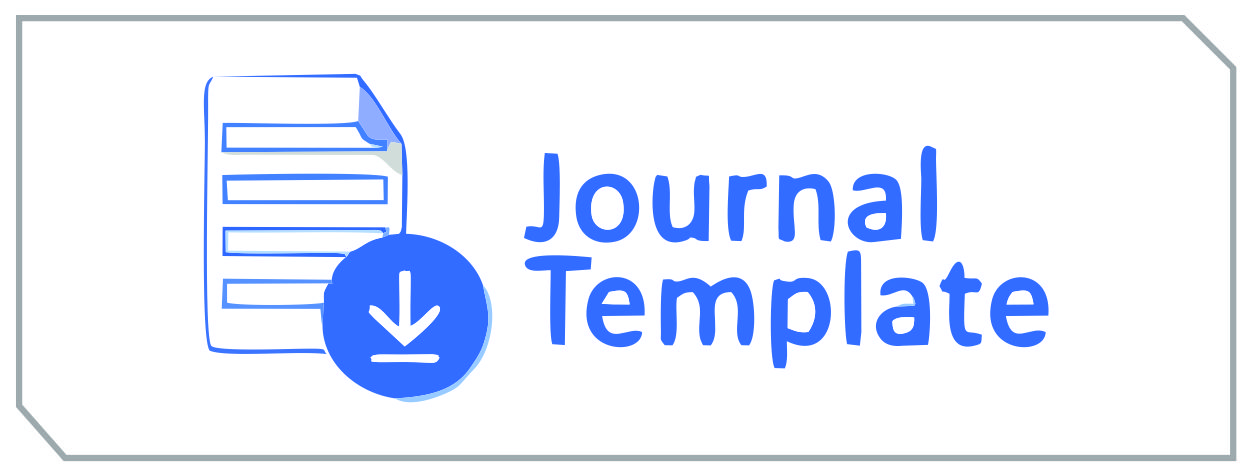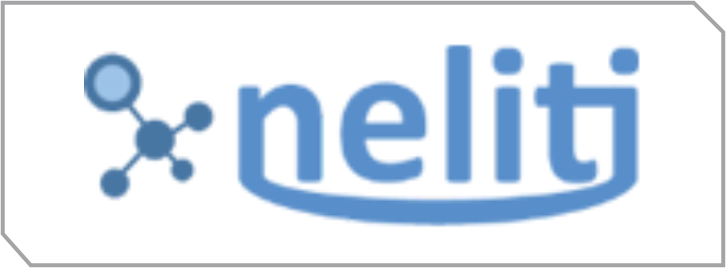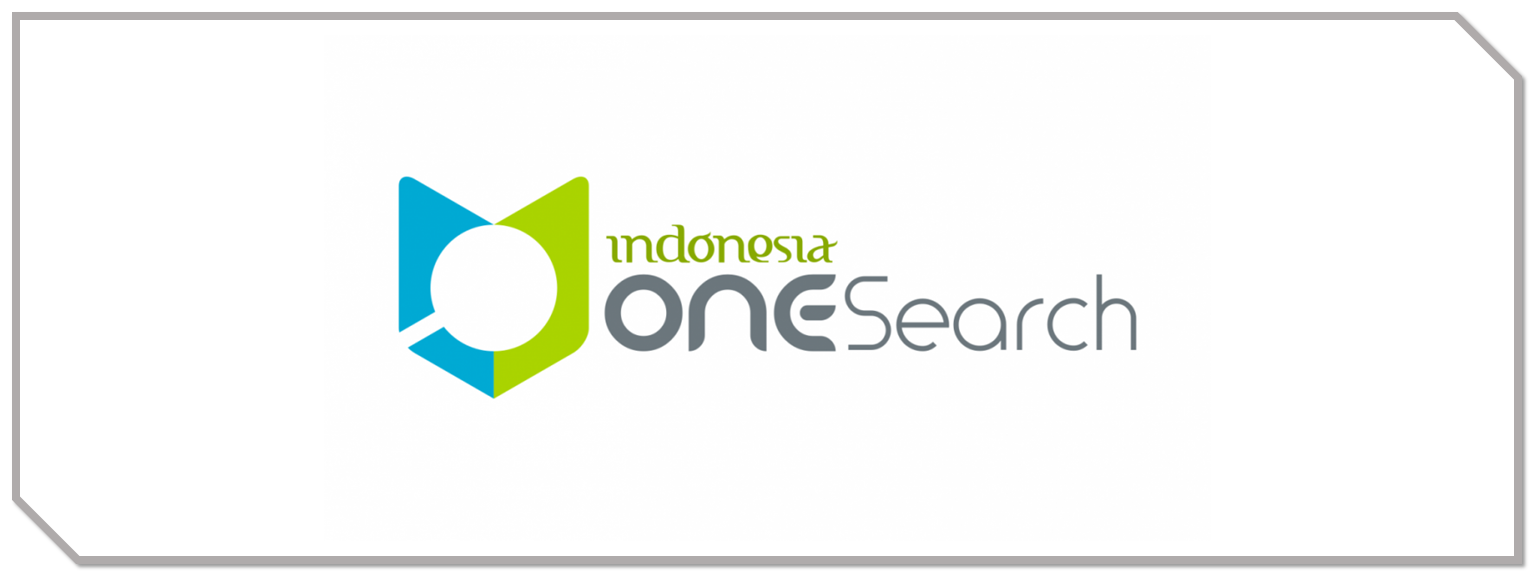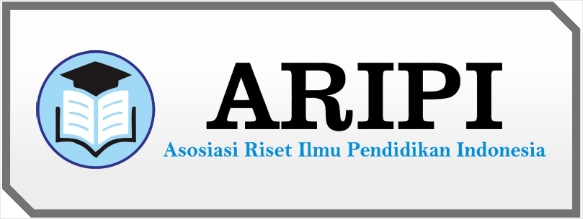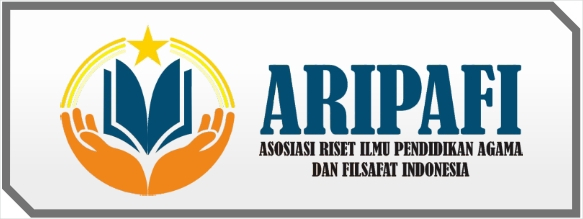Work Stress Levels At Madrasah Tsanawiyah Arrukhshatul'ulum: The Challenges of Digitalization in Developing Islamic Educational Institutions
DOI:
https://doi.org/10.55352/mudir.v7i1.1469Keywords:
Job Stress, Digitalization, EducatorsAbstract
Madrasah Tsanawiyah Arrukhshatul'ulum an Islamic educational institution in Indonesia is facing an era of digitalization that forces every academic institution to adapt to technological developments. This research aims to explore the extent of the impact of digitalization on the work stress levels of teaching staff at Madrasah Tsanawiyah Arrukhshatul'ulum. This research uses quantitative and qualitative approaches to provide a more comprehensive analysis. The population in this study was all teachers at Madrasah Tsanawiyah Arrukhshatul'ulum, totaling 14 people, namely 10 permanent teachers and 4 contract teachers. The instrument used was a Likert questionnaire to measure work stress by analyzing data using descriptive statistics and interviews. In this research, it can be concluded that digitalization at Madrasah Tsanawiyah Arrukhshatul'ulum has had a significant impact on the welfare of teaching staff, with the majority of teachers (65%) reporting work stress levels in the medium category, which indicates that they are still in the adaptation phase to the demands of digitalization. However, this condition should not be ignored, because without appropriate intervention, stress levels can increase to the high category, as experienced by 20% of respondents. As many as 80% of teachers feel that they do not have sufficient skills to use digital devices, so they face difficulties in carrying out their duties. In addition, 70% of teachers stated that digital-based administrative burdens, such as filling in data via applications or electronic reports, were felt to have added to their work pressure.
References
Al-Ahmadi, R. F., Al-Juffali, L., Al-Shanawani, S., & Ali, S. (2020). Categorizing and understanding medication errors in hospital pharmacy in relation to human factors. Saudi Pharmaceutical Journal, 28(12), 1674–1685. https://doi.org/https://doi.org/10.1016/j.jsps.2020.10.014
Al Ayyubi, I. I., Murharyana, M., Azizah, A., Nuroh, A. S., Yasmin, S., & Maulana, C. H. (2024). Pengaruh Model Pembelajaran Kontekstual terhadap Hasil Belajar Siswa di Pondok Pesantren Roudlotul Ulum. Al-Wasathiyah: Journal of Islamic Studies, 3(1), 1–13. https://doi.org/https://doi.org/10.56672/alwasathiyah.v3i1.198
Alfalah Riski. (2023). Menjadi guru di era society 5.0. Open Society Foundations (OSF). https://osf.io/4h38b/
Creswell, J. W. (2010). Research Design: Pendekatan Kualitatif, Kuantitatif, dan Metode Campuran. Diterjemahkan Oleh Achmad Fawaid, Edisi Ke-3. Cet. Ke-1. Yogyakarta: Pustaka Setia.
Hanun, S. F., Rahman, Y., & Husnita, H. (2023). Penerapan Metode Project Based Learning Untuk Meningkatkan Minat Belajar PAI Siswa. Educativo: Jurnal Pendidikan, 2(1), 97–106. https://doi.org/https://doi.org/10.56248/educativo.v2i1.112
Hölscher, S. I. E., Gharaei, N., Schachner, M. K., Ott, P. K., & Umlauft, S. (2024). Do my students think I am racist? Effects on teacher self-efficacy, stress, job satisfaction and supporting students in culturally diverse classrooms. Teaching and Teacher Education, 138, 104425. https://doi.org/https://doi.org/10.1016/j.tate.2023.104425
Indriyani, A., Saefulloh, M., & Riono, S. B. (2020). Pengaruh diklat kependidikan dan kesejahteraan guru terhadap kualitas guru di sekolah dasar negeri di kecamatan Jamblang Kabupaten Cirebon. Syntax Idea, 2(7).
Istikomah. (2018). Implementasi Fungsi Manajemen Pendidikan (Studi Kasus di MAN Insan Cendekia Jambi). HIKMAH: Jurnal Pendidikan Islam, 7(2), 230–246.
Joyoleksono, S. K., Raharjo, T. J., & Suratinah. (2022). Pengaruh Model Problem Based Learning dalam Meningkatkan Motivasi dan Hasil Belajar Peserta Didik Kelas IV Pada Pembelajaran Matematika. Jurnal Profesi Keguruan, 5(1), 15–22. https://journal.unnes.ac.id/nju/index.php/jpk/article/view/35803/12898
Karuniakhalida, P., Maimunah, M., & Murni, A. (2019). Development of ICT-Based Mathematical Media on Linear Program Materials to improve motivation learning students. Journal of Educational Sciences, 3(2), 195–204. https://doi.org/http://dx.doi.org/10.31258/jes.3.2.p.195-204
Khodijah, S. I., Khodijah, A., Adawiyah, N., & Tabroni, I. (2021). Tantangan Pendidikan karakter di Era Digital. Lebah, 15(1), 23–32. https://doi.org/10.53863/kst.v6i01.1006
Kim, M., Lee, H., & Kwak, J. (2020). The changing patterns of China’s international standardization in ICT under techno-nationalism: A reflection through 5G standardization. International Journal of Information Management, 54, 102145. https://doi.org/https://doi.org/10.1016/j.ijinfomgt.2020.102145
Kumala, S. A. W. (2024). Pentingnya Sosialisasi Menjaga Kesehatan Mental Bagi Remaja Guna Meningkatkan Kesadaran Akan Masalah Kesehatan Mental Di Masa Pandemi Di Desa Wonojoyo (Kkn-Dr Iain Kediri). Insan Cita : Jurnal Pengabdian Kepada Masyarakat, 6(1), 136–144. https://doi.org/10.32662/insancita.v6i1.1737
Lafendry, F. (2022). Implementasi ICT dalam Pembelajaran. Tarbawi: Jurnal Pemikiran Dan Pendidikan Islam, 5(1), 37–49. https://stai-binamadani.e-journal.id/Tarbawi/article/view/316
Laster, B., Butler, M., Waller, R., Vasinda, S., Hoch, M., Orellana, P., Rhodes, J., Deeney, T., Scott, D. B., Gallagher, T., Cavendish, L., Milby, T., Rogers, R., Johnson, T., Msengi, S., Dozier, C., Huggins, S., & Gurvitz, D. (2023). Literacy Clinics During COVID-19: Voices that Envision the Future. Literacy Research and Instruction, 62(2), 155–179. https://doi.org/10.1080/19388071.2022.2134064
Lestari, R., & Masyithoh, S. (2023). Problematika Pendidikan Islam Di Indonesia Abad 21. Al-Rabwah, 17(01), 52–60. https://doi.org/10.55799/jalr.v17i01.252
Liam, L., Hui, H., & Carsten, L. (2023). Utilization of ICT in Learning the History of Islamic Culture. Scientechno: Journal of Science and Technology, 2(1), 64–79. https://doi.org/10.55849/scientechno.v2i1.49
Lim, C., Martin, Adnyana, M. A., Achmad, S., & Sutoyo, R. (2023). Online Learning Platform Analysis During COVID- 19 Pandemic in Indonesia. Procedia Computer Science, 227, 606–613. https://doi.org/https://doi.org/10.1016/j.procs.2023.10.564
Malik, R. S. (2018). Educational Challenges in 21St Century and Sustainable Development. Journal of Sustainable Development Education and Research, 2(1), 9. https://doi.org/10.17509/jsder.v2i1.12266
Md Sawari, S. S., Muflihin, A., Warsiyah, W., & Madrah, M. Y. (2022). Urban Society’S Perception of Islamic Religious Education and Its Implications for Curriculum Development in the Era of Society 5.0. Akademika : Jurnal Pemikiran Islam, 27(2), 255. https://doi.org/10.32332/akademika.v27i2.5805
Murharyana, M., Al Ayyubi, I. I., & Rohmatulloh, R. (2023). Pendidikan Akhlak Anak Kepada Orang Tua Dalam Perspektif Al-Quran. Piwulang: Jurnal Pendidikan Agama Islam, 5(2), 175–191. https://doi.org/http://dx.doi.org/10.32478/piwulang.v5i2.1515
Murharyana, M., Al Ayyubi, I. I., Rohmatulloh, R., & Ikromi, S. N. (2024). The Effects of Islamic Religious Education Learning on Students’ Motivation. At-Tadzkir: Islamic Education Journal, 3(1), 1–14. https://doi.org/https://doi.org/10.59373/attadzkir.v3i1.44
Nabila Rahma Aulia, Embun Luthfi Shodiqoh, & Sania Putri Cahyaningrum. (2023). Analisis Kebijakan Kesejahteraan Guru Terhadap Peningkatan Kualitas Pendidikan. BASA Journal of Language & Literature, 3(1), 26–31. https://doi.org/10.33474/basa.v3i1.19706
Nursikin, M. (2016). Aliran-aliran Filsafat Pendidikan dan Implementasinya dalam Pengembangan Kurikulum Pendidikan Islam. Attarbiyah, 1(2), 303–334. https://doi.org/10.18326/attarbiyah.v1i2.303-334
Park, H., Kim, H. S., & Park, H. W. (2021). A scientometric study of digital literacy, ICT literacy, information literacy, and media literacy. Journal of Data and Information Science, 6(2), 116–138. https://doi.org/https://doi.org/10.2478/jdis-2021-0001
Pastor, Y., Pérez-Torres, V., Thomas-Currás, H., Lobato-Rincón, L. L., López-Sáez, M. Á., & García, A. (2024). A study of the influence of altruism, social responsibility, reciprocity, and the subjective norm on online prosocial behavior in adolescence. Computers in Human Behavior, 154, 108156. https://doi.org/https://doi.org/10.1016/j.chb.2024.108156
Pitriyani, A., Sanda, Y., Remi, S. N., Yesepa, Y., & Mulawarman, W. G. (2022). Sistem Kompensasi dalam Menjamin Kesejahteraan Guru Honorer di Sekolah Menengah Pertama Negeri. Jurnal Basicedu, 6(3), 4004–4015. https://doi.org/10.31004/basicedu.v6i3.2779
Putri, W. N., & Nugroho, M. A. (2016). Strategi Pengembangan Profesionalisme Tenaga Pendidik di Madrasah. MUDARRISA: Jurnal Kajian Pendidikan Islam, 8(2), 313. https://doi.org/10.18326/mdr.v8i2.313-340
Sabarudin, M., Al Ayyubi, I. I., & Rohmatulloh, R. (2023a). Metode Project-Based Learning Untuk Menumbuhkan Nilai-Nilai Pancasila. AlMaheer: Jurnal Pendidikan Islam, 1(02), 15–22. https://journal.stitalazami.ac.id/index.php/almaheer/article/view/14
Sabarudin, M., Al Ayyubi, I. I., & Rohmatulloh, R. (2023b). Strategi Pembelajaran PAI Berbasis Inkuiri dan Kemampuan Berpikir Kritis Mahasiswa. Kaffah: Jurnal Pendidikan Dan Sosio Keagamaan, 2(2), 84–92. https://jurnal.unmabanten.ac.id/index.php/kaffah/article/view/532
Sabarudin, M., Al Ayyubi, I. I., Rohmatulloh, R., & Indriyani, S. (2023). The Effect of Contextual Teaching and Learning Models on Al-Quran and Hadith Subjects. At-Tadzkir: Islamic Education Journal, 2(2), 129–142. https://doi.org/https://doi.org/10.59373/attadzkir.v2i2.43
Sabarudin, M., Al Ayyubi, I. I., Suryana, I., Rohmatulloh, R., & Saepulloh, S. (2023). The Effect of the SAVI Learning Model on Arabic Writing Skills: A Case Study at MTS Arrukhsatul ‘Ulum, West Bandung. Khulasah: Islamic Studies Journal, 5(2), 102–111. https://doi.org/https://doi.org/10.55656/kisj.v5i2.114
Sari, I., & Hamami, T. (2022). Pengembangan Metode Flipped Classroom dalam Pendidikan Agama Islam: Solusi Pembelajaran di Masa Pandemi Covid-19. Edukatif : Jurnal Ilmu Pendidikan, 4(4), 5744–5753. https://doi.org/10.31004/edukatif.v4i4.3420
Setiadi, D., Nurhayati, S., Ansori, A., Zubaidi, M., & Amir, R. (2023). Youth’s Digital Literacy in the Context of Community Empowerment in an Emerging Society 5.0. Society, 11(1), 1–12. https://doi.org/10.33019/society.v11i1.491
Setiyadi, H., Isnaeni, W., & Ellianawati, E. (2021). ICT-Based Authentic Assessment System Development to Measure Students’ Responsibility, Cognitive, and Teamwork Skill. Journal of Primary Education, 10(4), 497–512. https://doi.org/10.15294/JPE.V10I4.54382
Souza, A. S. C. de, & Debs, L. (2024). Concepts, innovative technologies, learning approaches and trend topics in education 4.0: A scoping literature review. Social Sciences & Humanities Open, 9, 100902. https://doi.org/https://doi.org/10.1016/j.ssaho.2024.100902
Sugiyono. (2021). Metode Penelitian Kuantitatif Kualitatif dan R&D. Alfabeta.
Tabroni, I., Susana, S., Mulyadi, A., & Zaelani, N. (2022). Utilization of the Discovery Learning Model to Overcome Islamic Cultural History Learning Problems in Madrasa. Indonesian Journal of Islamic Education Studies (IJIES), 5(1), 81–94. https://doi.org/10.33367/ijies.v5i1.2409
Tetambe, A. G., & Dirman, D. (2021). Kreativitas Guru Pendidikan Agama Islam Dalam Mengembangkan Media Pembelajaran Berbasis ICT. Zawiyah: Jurnal Pemikiran Islam, 7(1), 80–100. https://doi.org/http://dx.doi.org/10.31332/zjpi.v7i1.2920
Tsazkia, F. (2022). Hubungan antara kesejahteraan dengan kinerja guru di Madasah Tsanawiyah Nahdlatul Mujahidin NW. UIN Mataram. http://etheses.uinmataram.ac.id/4091/
Usman, A. H., Stapa, Z., & Abdullah, M. F. R. (2020). How to deal with workplace stress: A Sufist psychotherapy approach. Mental Health, Religion & Culture, 23(7), 625–638. https://doi.org/https://doi.org/10.1080/13674676.2020.1735323
Yarissumi, Y. (2017). Hubungan antara Konsentrasi Belajar Peserta Didik dengan Keaktifan Belajarnya pada Bimbingan Belajar Bahasa Inggris Happy Course. KOLOKIUM Jurnal Pendidikan Luar Sekolah, 5(2), 132–142. https://doi.org/10.24036/kolokium-pls.v5i2.31
Zainiyati, H. S. (2018). Pengembangan Media Pembelajaran Agama Islam Berbasis ICT. Kencana.
Zulkifli, M., Darmawan, A., & Sutrisno, E. (2014). Motivasi Kerja, Sertifikasi, Kesejahteraan dan Kinerja Guru. Persona: Jurnal Psikologi Indonesia, 3(02).
Downloads
Published
Issue
Section
License
Copyright (c) 2025 Mudir : Jurnal Manajemen Pendidikan

This work is licensed under a Creative Commons Attribution-ShareAlike 4.0 International License.


